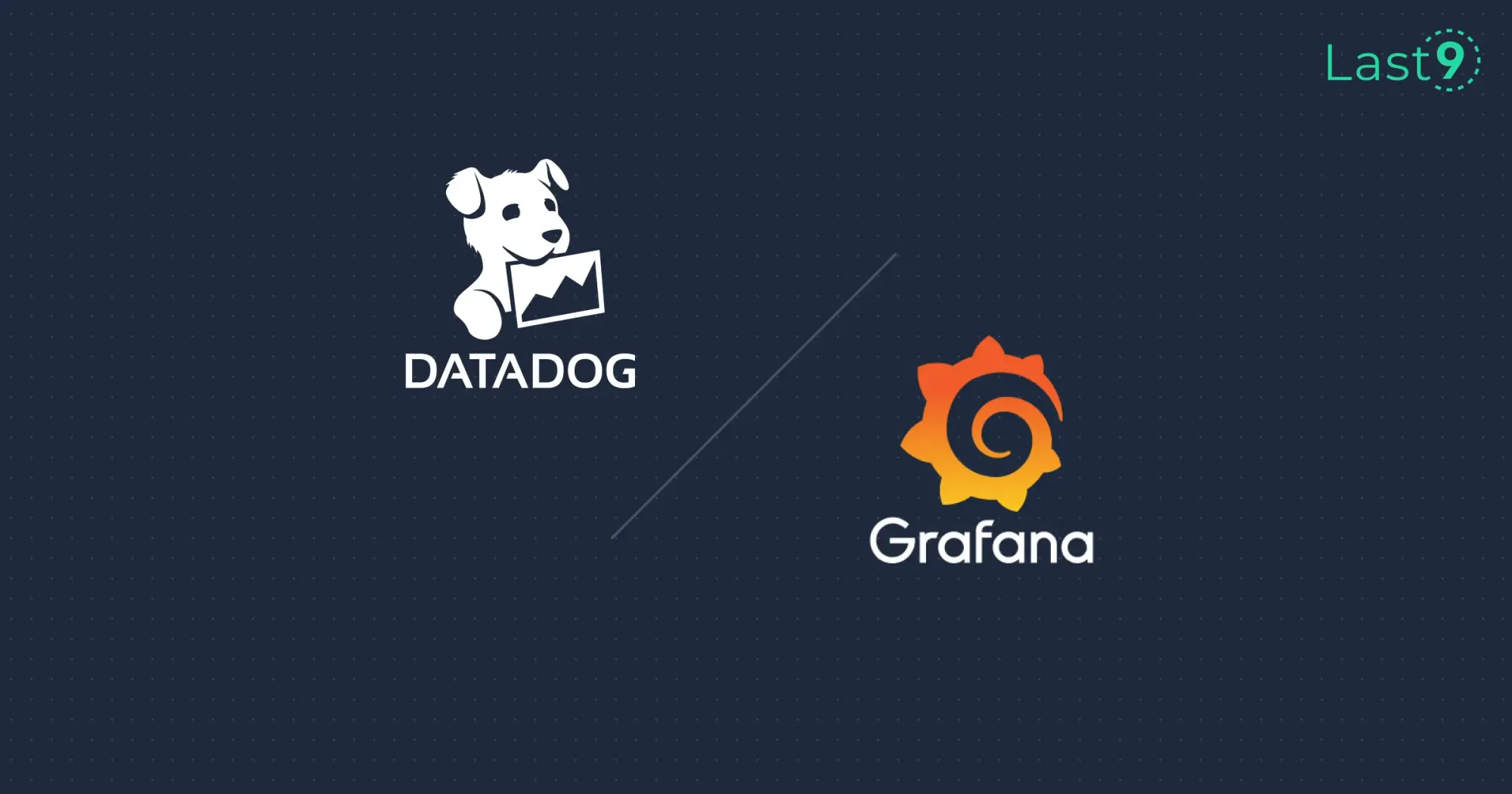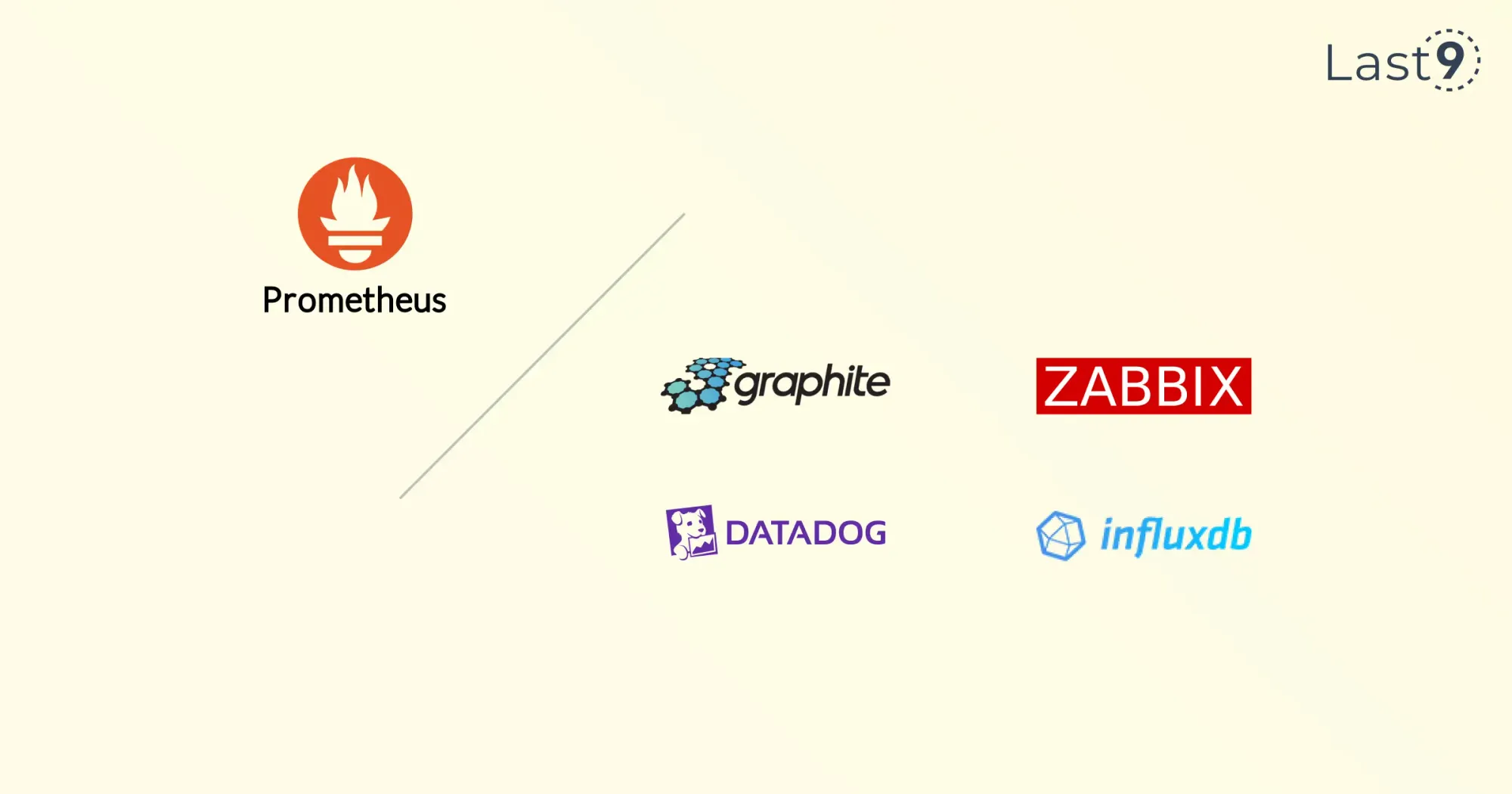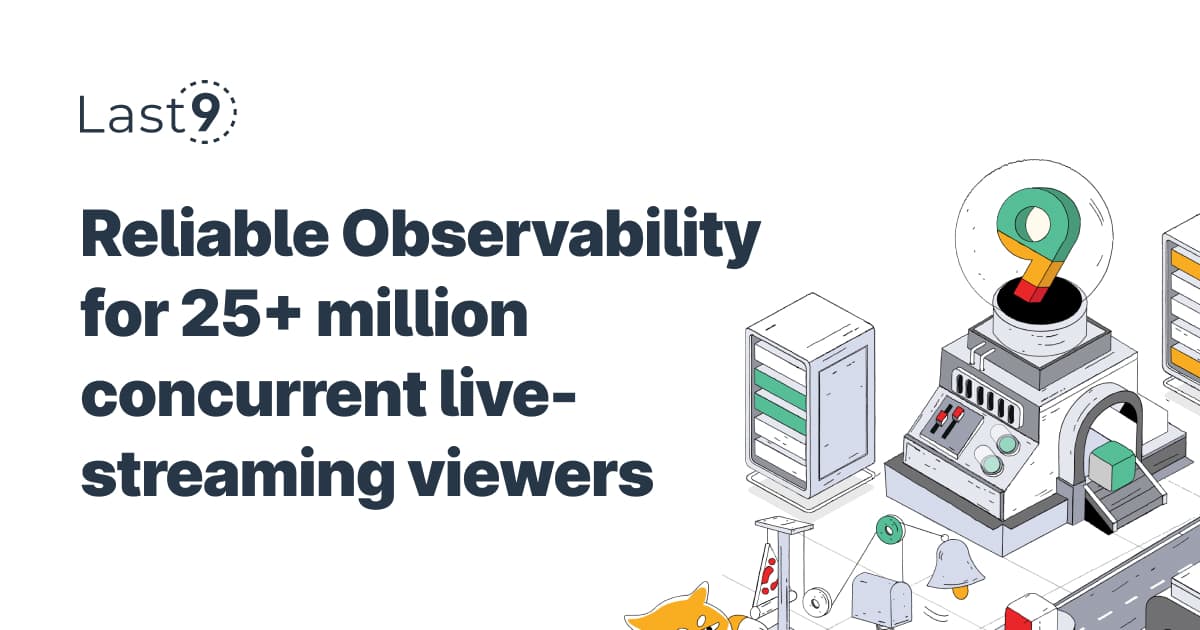Elasticsearch and OpenSearch both solve distributed search and analytics at scale, but they’ve diverged in ways that matter to developers. The 2021 licensing shift forked the ecosystem: Elasticsearch moved to SSPL, while OpenSearch continued under Apache 2.0. That split didn’t just impact legal teams; it affects APIs, plugins, deployment strategies, and how you monitor production clusters.
This blog breaks down where the two projects align, where they differ, and what that means for architecture, performance, and long-term maintainability.
What Are OpenSearch and Elasticsearch?
Elasticsearch is a distributed, open-source search and analytics engine built on Apache Lucene. Its speed, scalability, and versatility gained immense popularity, making it a favorite for use cases like log analysis, full-text search, and observability.
Elastic, the company behind Elasticsearch, has since expanded its offerings with Elastic Cloud, a SaaS platform packed with features like machine learning and advanced analytics.
OpenSearch, on the other hand, is a fork of Elasticsearch, initiated by AWS after Elastic transitioned to a more restrictive licensing model under the Server Side Public License (SSPL).
OpenSearch remains fully open-source under the Apache 2.0 license, focusing on a community-driven approach to development. This makes it a popular choice for those looking to avoid vendor lock-in while maintaining compatibility with Elasticsearch APIs.
Key Differences Between OpenSearch and Elasticsearch
1. Licensing and Community Model
This is where the two projects part ways most clearly.
Elasticsearch used to be licensed under Apache 2.0. That changed in 2021 when Elastic switched to a dual license model: SSPL and Elastic License v2. These licenses restrict how you can use the software, especially if you're offering Elasticsearch as part of a hosted or managed service. If you're building internal tooling, you're probably fine. But for anything customer-facing, you’ll want to run a license check before going further.
OpenSearch, on the other hand, sticks with Apache 2.0. That means no legal ambiguity around usage, redistribution, or modifications, even if you’re bundling it into a commercial product. It’s backed by AWS but actively maintained by contributors across the community. For teams looking to avoid vendor lock-in and keep their infra choices flexible, that’s a big win.

2. Features and Plugins
Both platforms started from the same codebase, so they still look and feel similar—but their ecosystems have evolved differently.
Elasticsearch comes with a full suite of tools:
- Kibana for dashboards and visualizations
- Logstash and Beats for ingesting and processing data
- Advanced features like machine learning, anomaly detection, and SIEM tools, though these are part of Elastic’s commercial offering, not available in the open-source version.
OpenSearch covers most of the core functionality and replaces the stack with its equivalents:
- OpenSearch Dashboards, a fork of Kibana, with similar visuals and UX
- Open-source plugins for security (RBAC, fine-grained access), Index State Management, alerting, and basic anomaly detection
- Built-in support for traces, metrics, and logs under the Observability plugin
You won’t get Elastic’s proprietary ML stack out of the box, but OpenSearch is pushing in that direction, just with a more modular, plugin-based model.

3. Cloud Integrations
Both Elasticsearch and OpenSearch work well in cloud environments, but their ecosystems reflect different priorities.
Elasticsearch offers a fully managed service, Elastic Cloud, available on AWS, Azure, and Google Cloud. It’s tightly integrated with Elastic’s proprietary features like ML, searchable snapshots, and runtime fields. The managed platform handles scaling, snapshots, and upgrades, making it easier to stay aligned with Elastic's release cadence. If you’re all-in on Elastic’s commercial features, this is the simplest path.
OpenSearch is the default engine behind Amazon OpenSearch Service, which supports autoscaling, data lifecycle policies, and integration with AWS-native services like Lambda, Kinesis, S3, and CloudWatch. Because OpenSearch is open-source under Apache 2.0, it’s also more portable, you can run it on Kubernetes, in Docker, or even on bare metal with the same codebase and config as your staging cluster.
In short:
- Elastic Cloud gives you deep feature integration, but at the cost of vendor lock-in and license constraints.
- OpenSearch gives you deployment flexibility and broader compatibility with AWS-native workflows.

4. Performance and Scalability
Both Elasticsearch and OpenSearch are built for distributed, high-throughput search and analytics. But performance tuning, and how much of it you need to do, can vary.
Elasticsearch has had a head start in production maturity. Its query planner, caching mechanisms, and index-level optimizations have been refined over years of enterprise use. Elastic's commercial features like searchable snapshots, frozen tiers, and runtime fields help reduce hot storage pressure and keep query latencies low, especially in multi-terabyte deployments.
In typical production setups, Elasticsearch clusters handle 10,000+ queries per second on mid-sized (3–5 node) deployments, with <100ms response times for common aggregations and term queries. Performance scales linearly when hardware is properly balanced across IO, CPU, and heap.
OpenSearch inherits much of Elasticsearch's core performance architecture and scales well, but tuning often requires deeper involvement. For example:
- Cache behavior can be optimized via parameters like
indices.queries.cache.sizeandindex.queries.cache.enabled. Improper sizing can lead to frequent cache evictions or missed hits. - Segment merging is managed by
index.merge.policy.*settings. Without tuning, aggressive merges may impact indexing throughput and heap usage. - Threadpool configuration (
threadpool.search.*,threadpool.write.*) can bottleneck under high concurrency, especially in workloads with heavy search or ingest traffic.
Additionally, features like k-NN, anomaly detection, and search pipelines depend on community or vendor-specific plugins. These often have their tuning knobs and memory characteristics, and their stability may vary between versions or under load.
That said, OpenSearch has come a long way, especially with improvements around shard balancing and query coordination. For most observability or log analytics workloads, it performs on par with Elasticsearch 7.x—just with more manual knobs to tweak if you're running large clusters or multi-tenant systems.
Key additions:
- Official documentation links for both platforms
- Specific configuration parameter documentation links
- Performance tuning guides
- Feature-specific documentation for advanced capabilities
- Links to official monitoring and performance analysis tools
These links provide developers with immediate access to the technical documentation they need to implement the concepts discussed, following the developer-first principle of reducing friction between reading about a feature and using it.
5. Common Use Cases
Both Elasticsearch and OpenSearch are designed for distributed search and analytics, and they overlap across most production workloads:
- Enterprise Search
Backing internal knowledge bases, product catalogs, or customer-facing search experiences with ranked relevance, faceted filters, and autocomplete. - Log Analytics
Indexing high-throughput log streams from containers, VMs, and edge devices. Often integrated with Fluent Bit, Filebeat, or Logstash. - Observability
Serving as a backend for storing and querying telemetry, metrics, logs, and traces. Especially relevant when paired with tools like OpenTelemetry or Jaeger. - Security Analytics (SIEM)
Ingesting audit logs, firewall events, and access logs to detect anomalies or policy violations. Both platforms support role-based access control, alerting, and dashboarding for threat detection pipelines.
Where they differ is in how they support these use cases:
- Elasticsearch offers deeper enterprise tooling, machine learning-based anomaly detection, prebuilt SIEM and endpoint security modules, searchable snapshots, and multi-cluster search. Most of these features, however, sit behind commercial licensing.
- OpenSearch provides open-source equivalents for most observability and security use cases, including alerting, basic anomaly detection, and customizable dashboards. While you may trade off some polish or automation, you gain flexibility in how it's deployed and extended.
If you're building custom observability platforms or security pipelines, OpenSearch offers more control. For enterprises that want a turnkey experience (and are okay with license constraints), Elasticsearch might offer faster time-to-value.

6. Ecosystem and Tooling
The surrounding ecosystem—dashboards, data pipelines, APIs, and security—can be just as important as the core engine. Here’s how Elasticsearch and OpenSearch compare across the broader stack.
Visualization & Dashboards
- Kibana (Elasticsearch)
Part of the ELK stack, Kibana is a mature UI layer for visualizing time-series data, building dashboards, and running ad-hoc queries. It supports scripted fields, Lens for drag-and-drop charts, and integrations with Elastic's ML features (e.g., anomaly timelines, heatmaps). - OpenSearch Dashboards
A fork of Kibana 7.10, with steady progress from the community. It replicates most core features, saved searches, index patterns, and custom panels, and adds support for OpenSearch-specific plugins like alerting, trace views, and notebooks. It’s not as polished as current Kibana releases, but it is closing the gap quickly.
Ingestion Pipelines
- Logstash (Elastic)
A powerful, mature ETL engine with support for hundreds of input, filter, and output plugins. Ideal for parsing unstructured logs, enriching fields, and shaping documents before indexing. - OpenSearch
Compatible with Logstash, Fluentd, Fluent Bit, Vector, and Data Prepper (AWS-native). You’re not locked into a single ingestion model—which makes it easier to tailor your pipeline to container logs, event streams, or structured metrics.
API Compatibility and SDKs
For the most part, OpenSearch maintains strong API and SDK compatibility with Elasticsearch:
- Popular client libraries like the Python
elasticsearch-py, Java High-Level REST Client, and JavaScript SDKs continue to work with minimal changes. - Core components, query DSL, aggregations, and index mappings, retain the same structure.
- Ingest pipelines, search templates, and bulk indexing also require little to no modification, unless your application uses Elasticsearch features introduced after v7.10.
That said, OpenSearch is beginning to diverge. Features like runtime fields, EQL, and native vector search enhancements are evolving independently.
Be mindful of:
- Authentication endpoint differences (e.g., AWS SigV4 vs basic auth)
- Response and error format changes
- Plugin-specific behaviors (e.g., alerting, ML, or security plugins)
Security Features
Both platforms support core security capabilities:
- Role-based access control (RBAC)
- TLS encryption at rest and in transit
- Audit logging and tenant isolation
- API key and SAML/OIDC-based authentication
Elastic bundles basic auth with the free tier, but reserves advanced features,field-level security, SSO integrations, and encryption management for paid licenses.
OpenSearch, by contrast, ships all of this as part of its open-source security plugin, enabled by default in most distributions. You get fine-grained controls without additional licensing or feature gating.
Licensing Considerations
Elastic’s switch from Apache 2.0 to SSPL created friction for developers and platform teams who rely on open-source clarity. SSPL allows source code access but restricts offering Elasticsearch as a managed service unless you open-source your entire stack.
OpenSearch, under Apache 2.0, avoids those legal constraints. It’s a safer long-term choice for:
- Building self-hosted or white-labeled products
- Embedding search in customer-facing SaaS
- Teams with strict open-source procurement policies

7. Scalability and Performance
Scaling distributed search isn’t just about adding nodes; it’s about managing shards, balancing I/O, and optimizing query execution across changing workloads.
Elasticsearch takes a more hands-off, enterprise-optimized approach.
Features like:
- Index Lifecycle Management (ILM) automate hot-warm-cold tier transitions.
- Machine learning-based adaptive replica selection helps route queries to less-burdened nodes.
- Searchable snapshots reduce storage cost while keeping older data queryable.
These features are powerful, especially in large clusters with variable retention policies, but many of them are locked behind commercial licenses.
OpenSearch, by contrast, leans toward flexibility over automation.
It gives you:
- Fine-grained control over shard allocation, ISM policies, and node roles
- Real-time performance tuning via config files and APIs
- A more modular plugin ecosystem for observability and k-NN search
You’ll get fewer “set-it-and-forget-it” features out of the box, but more control to tailor the system to your workload, especially useful in smaller clusters, self-managed infra, or real-time analytics stacks.
8. Pricing Models
The cost equation between Elasticsearch and OpenSearch comes down to two things: license fees and operational effort.
Elasticsearch
- Follows a tiered model: Basic features (indexing, querying, Kibana) are free; advanced features like ML, cross-cluster replication, and field-level security require Gold, Platinum, or Enterprise tiers.
- Elastic Cloud, their managed service, adds convenience but comes with predictable managed service pricing, metered by storage, ingestion rate, and premium features.
- You’re paying for lower operational overhead and access to proprietary tools, but you’re also locked into Elastic’s pricing model and upgrade cadence.
OpenSearch
- 100% free and open-source under Apache 2.0, no feature gating, no vendor lock-in.
- Cost is purely based on infrastructure, whether it’s EC2, EKS, on-prem, or Kubernetes.
- AWS offers Amazon OpenSearch Service, a managed option with autoscaling and monitoring baked in. But you can also run it self-hosted using Docker or bare metal.
For budget-conscious teams or those with strict OSS policies, OpenSearch often wins on flexibility and long-term cost control, assuming you're comfortable managing a bit more infrastructure.

Conclusion
Both OpenSearch and Elasticsearch are capable search and analytics engines built for scale, but they represent different trade-offs.
Elasticsearch offers a refined developer experience, enterprise-grade features, and deep integrations, if you’re comfortable with commercial licensing and managed service pricing. OpenSearch, on the other hand, gives you full control under a permissive license, with an active OSS community and broad flexibility for self-hosted or cloud-native deployments.
If your stack includes OpenSearch or Elasticsearch, observability becomes a challenge of its own, especially when you’re also managing metrics, logs, and traces from multiple sources.
To bridge that gap, Last9 brings everything together.
Instead of stitching together separate tools, Last9 offers a unified view across telemetry signals, metrics from Prometheus, traces from OpenTelemetry, and logs from your search backend, without the overhead of managing your own storage or correlation logic.
You get:
- Native support for OpenSearch and Elasticsearch metrics
- Real-time alerting and RCA tools tied to actual service behavior
- Easy correlation between infrastructure signals and application-level events
From query profiling to retention tuning, Last9 gives you the observability context to reduce mean time to resolution (MTTR).

Schedule a demo with us to know more, or try it for free to understand the product more!
FAQs
Is OpenSearch the same as Elasticsearch?
No, OpenSearch is a fork of Elasticsearch. While similar in functionality, OpenSearch focuses on open-source licensing and community-driven development.
Is OpenSearch slower than Elasticsearch?
Performance depends on workload and deployment. OpenSearch is optimized for real-time analytics and continues to evolve.
What is the purpose of OpenSearch?
OpenSearch is designed as an open-source search and analytics engine for real-time data analysis, observability, and log analytics.
Is OpenSearch a drop-in replacement for Elasticsearch?
Yes, OpenSearch maintains API compatibility with Elasticsearch versions up to 7.10, making it a suitable replacement for many use cases.
What is AWS ELK?
AWS ELK refers to the managed Amazon Elasticsearch Service (now Amazon OpenSearch Service), which supports both Elasticsearch and OpenSearch workloads.
Can OpenSearch Benchmark test Elasticsearch?
Yes, OpenSearch Benchmark supports Elasticsearch testing for performance evaluations.
Are Elasticsearch and Kibana better than OpenSearch?
It depends on your requirements. Elasticsearch and Kibana are feature-rich, but OpenSearch and Dashboards provide free, open-source alternatives.
How does OpenSearch differ from Elasticsearch in scalability?
Elastic’s advanced tools like machine learning make it more suited for large-scale predictive workloads. OpenSearch excels in real-time analytics and offers flexibility in deployment.
What client libraries work with both platforms?
Most Elasticsearch client libraries, like the official ones for Python (elasticsearch-py), Java (REST High-Level Client), JavaScript (@elastic/elasticsearch), Go, and Ruby—work with OpenSearch if you’re targeting APIs up to version 7.10.
For full compatibility:
- Pin your client version to match the Elasticsearch 7.x API spec.
- Avoid features introduced after v7.10 (e.g., runtime fields, EQL, enriched vectors).
OpenSearch also maintains its own forks of several clients (e.g.,opensearch-py,opensearch-js) that map to their newer APIs and plugins.
How do I handle authentication differences when migrating?
Elasticsearch and OpenSearch differ in how they handle auth, especially around security plugins and cloud setups:
- Elasticsearch (self-managed) often uses Basic Auth via the Elastic Stack Security module.
- Elastic Cloud adds API keys, SSO, and TLS enforcement out of the box.
- OpenSearch commonly uses the OpenSearch Security plugin, which includes support for Basic Auth, LDAP, SAML, and OpenID Connect.
If you're migrating:
- Audit your existing auth flow: headers, tokens, and user/role mappings.
- Adjust client configs to use OpenSearch Security-compatible credentials.
- If using AWS OpenSearch, enable SigV4 signing via AWS SDKs or compatible client wrappers.
Tip: Test auth with a simple_cat/indicesor_cluster/healthcall to validate your setup before migrating production workloads.









